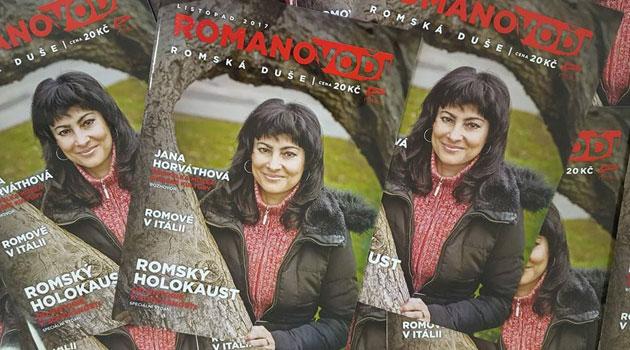Special issue of Romano voďi magazine on Romani Holocaust and Czech state buyout of pig farm on genocide site

The Czech and Romanes language magazine Romano voďi has dedicated most of its November issue to the subject of the Romani Holocaust. As the year comes to an end, the editors believe it is important to recall the dates and contexts that preceded the historically significant, groundbreaking decision by the Czech Government in August to buy out the pig farm on the site of the former camp at Lety.
Various articles in the issue review the current situation and discuss what can be anticipated from future developments. Experts collaborating with the magazine have been mapping events and time periods related to the former “Gypsy camps” and their postwar fates, about which little is generally known.
The director of the Museum of Romani Culture, Jana Horváthová, who is an historian, discusses with reporter Renáta Berkyová the museum’s perspective on the buyout of the farm and the administration and future form of the memorial there. She has also authored an article about the creation of the memorial at the former “Gypsy camp” at Hodonín u Kunštátu in which she describes the background of the political negotiations she participated in regarding that location.
The events of the wartime era at the Lety camp are focused on by historian Ctibor Nečas, while Jana Hejkrlíková focuses in more detail on the period between the closure of the camps and the 1989 Velvet Revolution in Czechoslovakia, a time about which many unmapped areas and unanswered questions remain. Because even a special issue is not enough to cover the full breadth of this subject, the editors have also prepared a brief guide to the existing literature and resources that have been available about this topic from the very beginning.
In other content, Inka Jurková contributes an article about Romani people in Italy today, and the magazine’s regular sections include pieces from the Romani children’s writing competition “Romano suno“, composer Gejza Bendig’s musings about his song “Budapest“, and literary scholar Karolína Ryvolová writes about contemporary Romani literature in Slovakia. The journal can be ordered using the simple online form at www.romanovodi.cz.